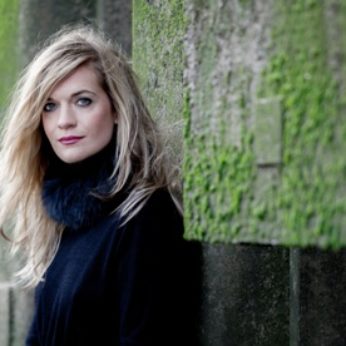Composer: Robert Schumann (b. 1810 - d. 1856)
Performance date: 01/07/2014
Venue: St. Brendan’s Church
Composition Year: 1852
Duration: 00:10:14
Recording Engineer: Richard McCullough, RTE
Instrumentation: S-solo, pf
Instrumentation Category:Duo
Artists:
Julius Drake -
[piano]
Ruby Hughes -
[mezzo-soprano]

Mary Stuart was the daughter of James V of Scotland
and inherited the Scottish throne when only 6 days old in 1542. Her French
mother took her to France where she later married King Francis II who also died
young, leaving her a widow at sixteen-years-old. She returned to Scotland where
she married her cousin the Earl of Darnley and their son later became James I
in succession to Elizabeth. When Darnley was assassinated and Mary was
suspected of complicity, the Scottish lords turned against her and she fled to
England, where she asked her cousin Queen Elizabeth I for protection.
Elizabeth, fearing Mary might try to claim her throne, had her incarcerated in
1568. She was held prisoner for many years and was then tried on a trumped up
writ of treason, being beheaded on February 8th, 1587. The tragic
tale has attracted a number of composers with some fifteen operas having been
written on the topic.
Schumann composed these,
his last set of songs, at the end of 1852. His mental stability was becoming
erratic and he claimed to hear music given to him by angels. At the start of
1854 he tried to drown himself, spending his final years in an asylum. The
poems are said to have been written by Mary Queen of Scots as she awaited her
fate and make a poignant reflection on his own deteriorating state of mind at
the time. In his diary at the time of composition he notes: I am going away and later save me.
The texts were translated into German verse by Gisbert von Vincke and
speak movingly of departure and farewell, echoing Schumann’s fears for himself.
The music is sparse and pared back almost to simplicity as if the composer was
seeking to purify his vision.
Copyright © 2025 West Cork Music. All rights reserved.
Designed and developed by Matrix Internet